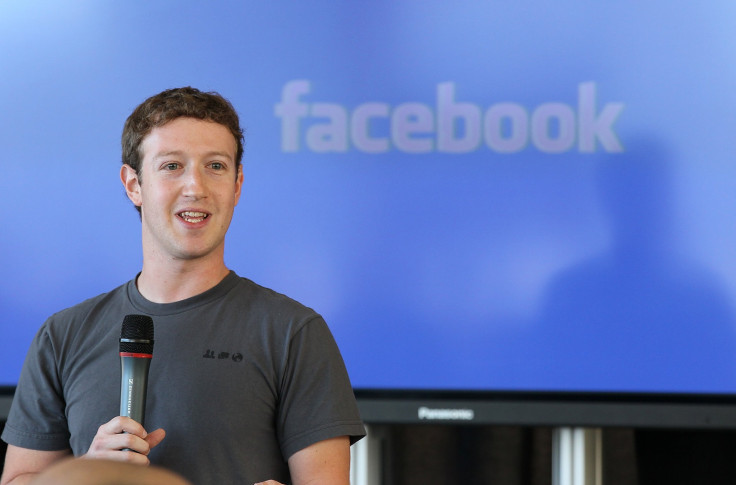China's Rich Face Criticism After Mark Zuckerberg's Charity Pledge

SHANGHAI -- The decision by Facebook founder Mark Zuckerberg to commemorate the birth of his daughter by donating 99 percent of his shares, worth some $45 billion, to a philanthropic foundation has aroused much debate in Chinese media -- and has led to some criticisms of the country’s own rich for failing to do enough for charity. More than 5 million people read posts on the topic on social media on Wednesday, Chinese media reported -- with many praising the establishment of the Chan Zuckerberg Initiative, which will promote health, education and stronger communities.
Zuckerberg’s move was an "inspiring example," according to an op-ed in the official Global Times newspaper while the paper said his decision has “pressured rich Chinese” to follow suit. It quoted one Internet user as saying, "I hope the tycoons and celebrities in China can pay more attention to the environment, healthcare and education, and buy fewer Koenigsegg [luxury race] cars.”
China has a fast growing number of super-rich -- it created 242 billionaires in the past year alone, research institute Hurun Report said recently. But it is also one of the world’s most unequal societies, according to official data -- and the behavior of the country’s wealthy has come in for increasing criticism.
State media have this year repeatedly accused the children of wealthy entrepreneurs of vulgar behavior. Wang Sicong, son of China’s richest man, property tycoon Wang Jianlin, has been attacked for comments made online about the kind of women he likes, and for posting pictures of his dog wearing two Apple Watches. A series of car crashes involving expensive sports cars, one of them after a road race between a Ferrari and a Lamborghini in Beijing, have fuelled criticisms, with one official department warning that young people “know only how to show off their wealth, but don’t know how to create wealth.”
Public debate on the topic has led to growing social pressure on Chinese entrepreneurs and celebrities to donate to charity -- with some criticized for failing to respond rapidly enough to natural disasters.
In fact charitable donations have grown significantly in recent years, according to Hurun Report -- and the country’s top 100 philanthropists gave $4.8 billion last year, double the amount the year before, according to one recent report. More Chinese companies have also been engaging in corporate social responsibility activities -- and the head of one Chinese gaming company recently bid $2.35 million for lunch with legendary American investor Warren Buffett, who together with Microsoft founder Bill Gates has invested billions in charity.
And Chinese tycoon Chen Guangbiao caused a stir last year when he invited 200 homeless people to lunch in a luxury New York restaurant and promised to give each of them $300. Chen said he wanted to show that some wealthy Chinese people cared about social responsibility, and change the image of Chinese billionaires, many of whom he said were more likely to “splurge on luxury goods, gambling and prostitution.”
However, those who attended the lunch later complained that they did not receive the cash payment, and some accused Chen of a publicity stunt. And the Global Times op-ed complained that “Chinese entrepreneurs either do nothing for charity or make a lot of trouble after devoting themselves to the sector.”
But the editor of a magazine focused on philanthropy pointed out that China’s lack of tax deductions for charitable donations has dampened the enthusiasm of Chinese entrepreneurs for giving. Both donor and recipient have to pay tax, the Global Times noted. And it said that a series of scandals involving the management of Chinese charities has also impacted donations -- with a recent study showing that 80 percent of donations by China’s 100 top philanthropists went to organizations outside China.
China’s second richest man, Jack Ma, founder of e-commerce giant Alibaba, said in a recent speech that because China’s wealthy were still a relatively new group, they should first concentrate on investing their wealth, to create new jobs and more wealth for society. Ma, who has invested widely in businesses, both big and small, in China since his company’s $25 billion listing on the New York Stock Exchange last year, said simply donating their fortunes would not be beneficial to the nation in the long term.
But Zuckerberg’s move is likely to add to calls for more charitable activity in China. Zuckerberg has attracted great interest from Chinese Internet users in recent years, particularly after he married Chinese-American Priscilla Chan and began learning Mandarin, which he has now used to make two public speeches at universities in Beijing. The Global Times described him as “an icon to many young Chinese people.” However, the paper said creating a society where entrepreneurs felt secure to donate their money would require “enormous social development.”
At the same time, the Chinese leadership, which has called for less extravagance in Chinese society as part of its ongoing anti-corruption campaign, has made it increasingly clear that it expects the country’s wealthy to become better citizens. President Xi Jinping has said that private entrepreneurs need guidance “to help them think about the source of their wealth and how to behave after becoming affluent.”
And the official United Front Work Department warned this year that if bad behavior by the children of the rich “makes all private entrepreneurs look bad, or affects social confidence towards private businesses, it will no longer be simply an economic problem.”
© Copyright IBTimes 2024. All rights reserved.





















